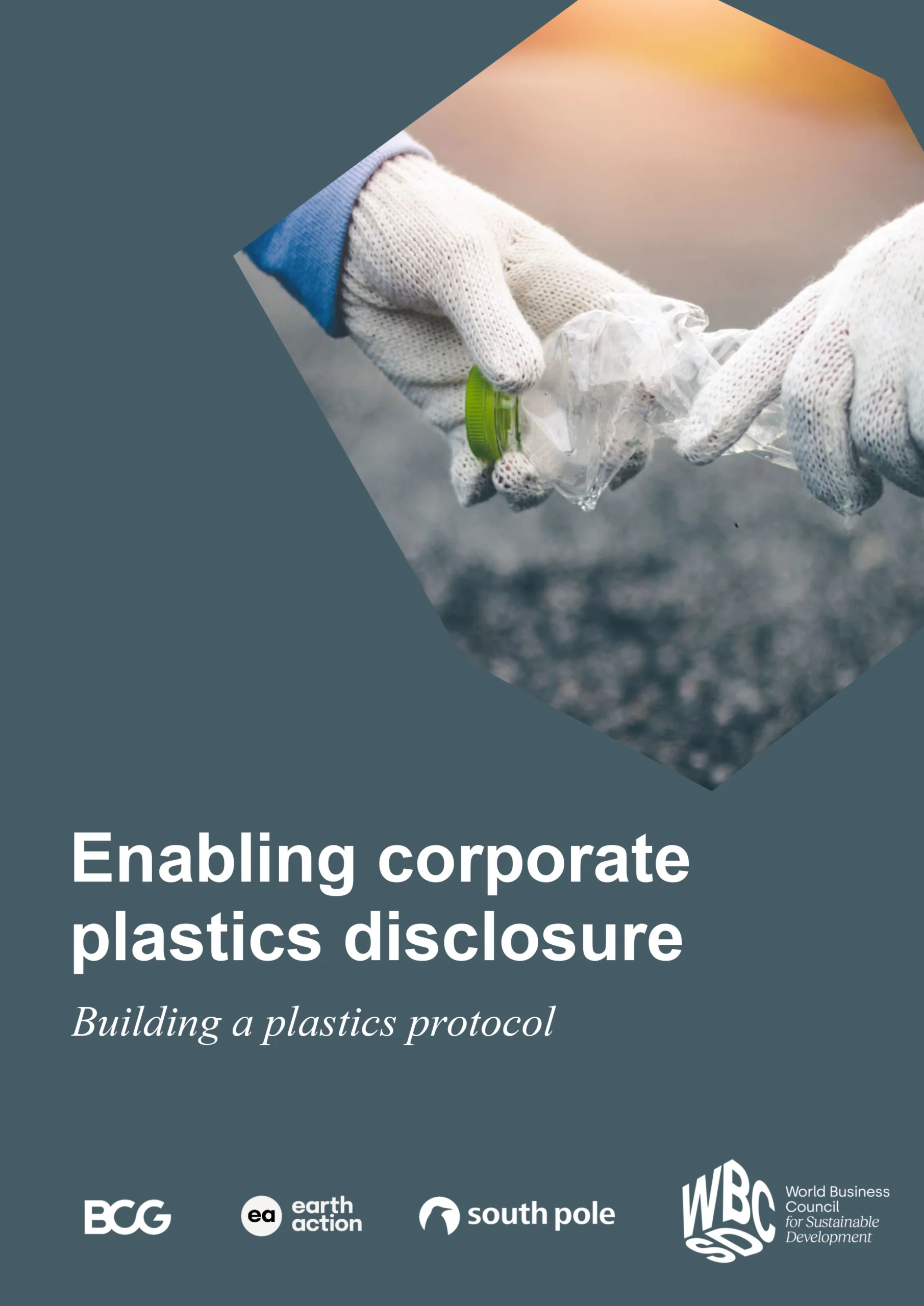Enabling corporate plastics disclosure: Building a plastics protocol
Published: November 3, 2023

In a world grappling with the pressing issue of plastic pollution, the imperative for companies to communicate their plastic impact is growing ever stronger. The International Legally Binding Instrument (ILBI) on plastic pollution will drive the need for even more transparency and accountability, requiring countries to report on progress and compliance.
Companies in the plastic value chain play a crucial role in supporting country reporting as they have the data needed to address the full lifecycle of plastics.
Introducing the plastics protocol
To enhance corporate performance and accountability under the ILBI, this paper introduces a plastics protocol. This protocol aims to create global standards for plastic accounting, goal-setting, and action planning, covering both plastic leakage and circularity. It focuses on three building blocks:
Accounting and assessment: Combining over 60 accounting metrics into two key indicators – the plastic footprint and plastic circularity – to evaluate company performance.
Ambition: Providing guidance on developing science-based targets to streamline goal setting for plastic footprint and circularity.
Action: Proposing standardized frameworks for action planning to reduce plastic footprint and enhance circularity, along with interim guidance until harmonization is achieved.
The plastics protocol is a key enabler of an emerging Corporate Performance and Accountability System for plastics, which will provide companies with guidance on how to set a baseline with data and circularity and leakage metrics, set targets, develop roadmaps and report and disclose plastic-related data.
Call for a Plastic Pollution Accountability Council
Recognizing the need for continuous refinement and alignment with mandatory disclosure requirements, we call for establishing a Plastic Pollution Accountability Council. This multi-stakeholder body will oversee the development and updates to the plastics protocol.